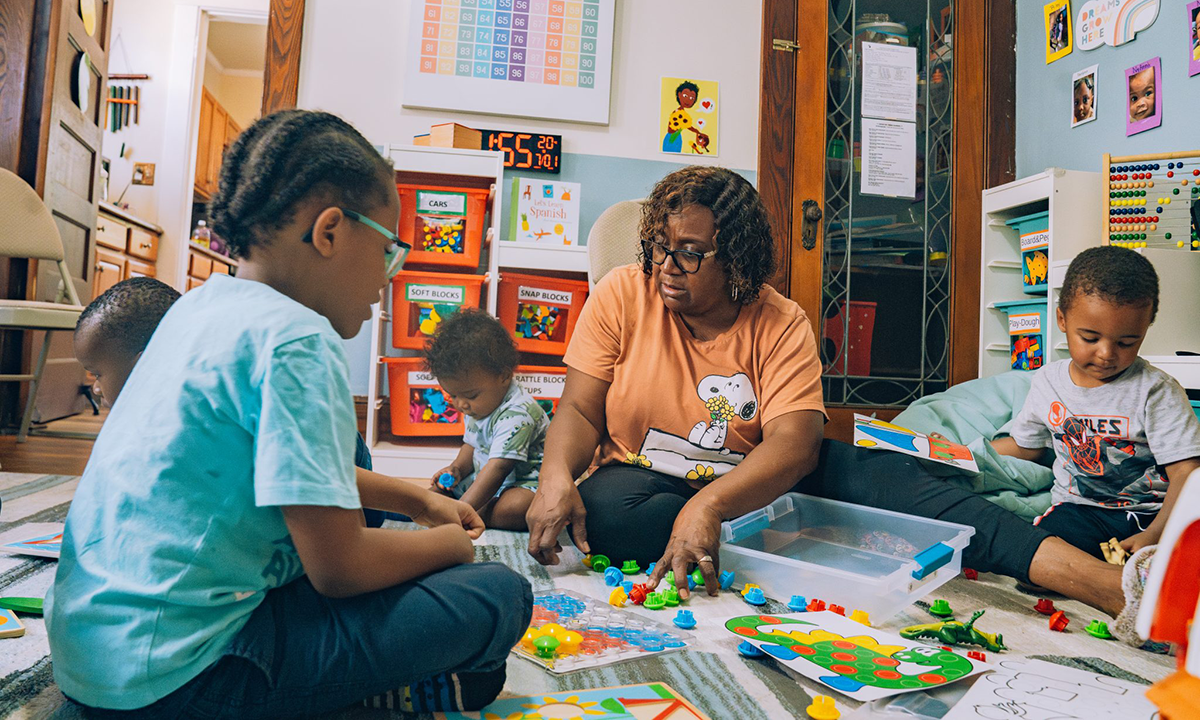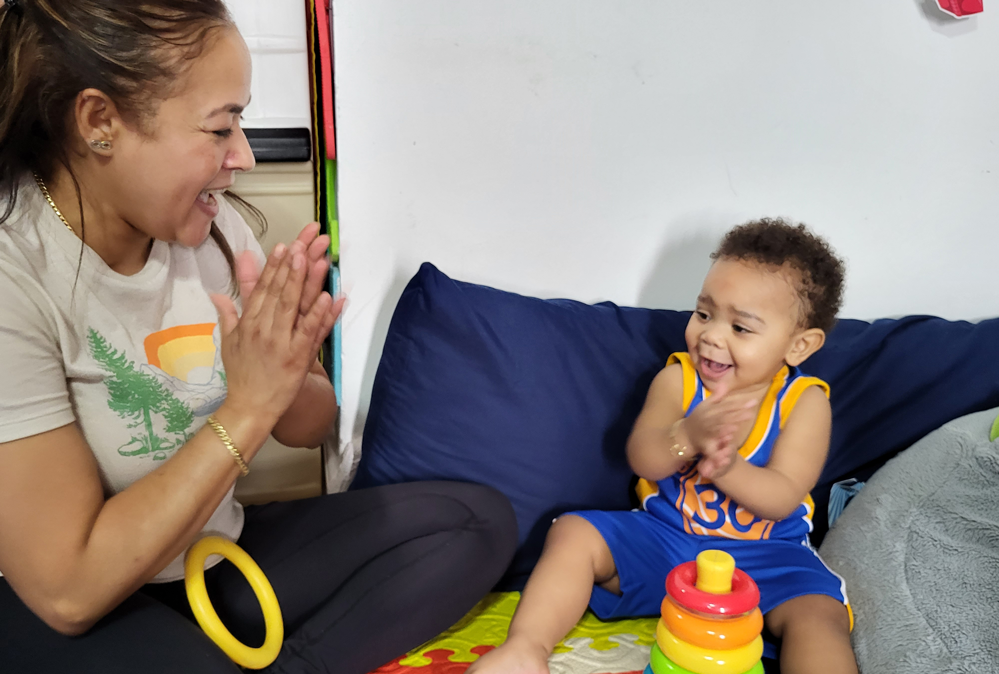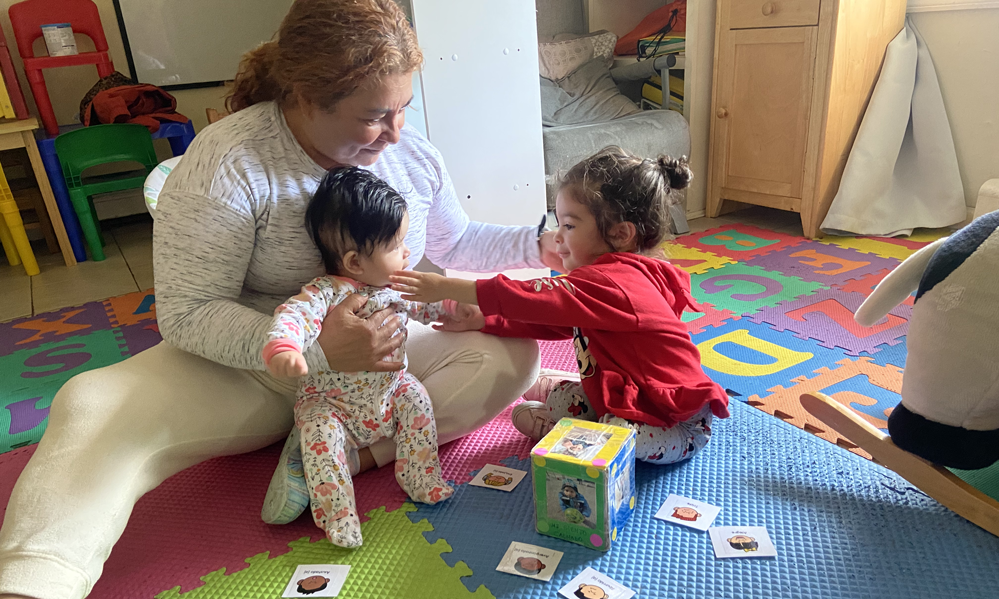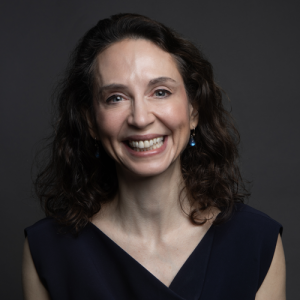Want a Sustainable Child Care System? Invest in Family Child Care Educators
Home-based providers demonstrate resilience and dedication, yet they’re too often forgotten in conversations about child care.

Join our zero2eight Substack community for more discussion about the latest news in early care and education. Sign up now.
When I was growing up, I learned quickly what it means to be a caregiver. My brother faced a host of physical and mental health challenges, and I helped him navigate a world that didn’t always meet his needs. That experience shaped my life, and ultimately, my work with family child care educators, who show up for children and families every single day.
Caregiving is essential, especially for families with young children. And yet, in our society, caregivers are ignored. This has been true for centuries, and certainly since the 1996 welfare reforms that fundamentally changed eligibility for government assistance imposing time limits and requiring parents (including those with young children) to enter the workforce in order to receive benefits. In the absence of child care, it left thousands of women facing an impossible choice, and spurred me to start All Our Kin, a nonprofit organization that trains, supports and sustains the often invisible family child care workforce.
These are skilled professionals who operate high-quality early learning programs out of their homes. As small business owners, they are a critical part of the early care and education infrastructure, providing flexible, culturally responsive care, particularly in neighborhoods where options are often limited, and especially for families working nontraditional hours. They fuel local economies and weather long days running their programs, creating jobs, giving parents freedom to work, and building community wealth.
These early learning professionals also play an important role in the lives of the children they serve, not only as core adults in their daily lives, but also as key providers of support when faced with some of the greatest challenges of our time such as public health emergencies, climate disruptions and economic instability. They adapt quickly and creatively to support children and families.
The responsibility of supporting young children and their families through periods of collective stress is longstanding, but it came into sharper view during the height of the pandemic. When larger child care centers were compelled to close, many home-based programs kept their doors open, providing care for the children of essential workers. And they not only remained open, but made the best of a nearly impossible situation to help children and families get through the toughest of days.
They overhauled their health and safety practices, implementing rigorous sanitization routines and reconfiguring small spaces to accommodate distancing protocols, all while maintaining a sense of calm and continuity.

They converted their spaces into remote learning hubs so school-aged children could attend virtual classes while the younger ones continued to receive early learning experiences. They used Zoom, social media platforms and phone calls to stay connected with children and families. And importantly, they developed innovative ways to help young children emotionally process what was happening. Some made tiny masks for dolls and stuffed animals, so children could see their reality reflected in play. Others put up tents in cozy corners, where children could crawl inside and feel safe.
And the innovation didn’t end after the pandemic. Home-based child care providers have been responsive to a slew of new realities. They’re helping children navigate the climate crisis that is already being felt in many of the communities where they live. Smoke from wildfires, extreme heat, and flooding are making outdoor play unsafe or impossible for days at a time. In response, educators have come up with new ways to keep children active. They lay out mattresses for jumping, create makeshift balance beams on the floor with masking tape, and create obstacle courses in hallways and living rooms. These activities support physical development and release energy, even when children are confined to small spaces.
Rather than shielding children from environmental realities, educators explain what’s happening in age-appropriate ways, offering reassurance and building children’s ability to cope with change. I’ve seen the creative ways in which they are integrating climate education into their curriculum: growing vegetables, teaching children to care for plants, and using those lessons to build connections to heritage, health and sustainability.
When immigration enforcement threatens the stability of families, I’ve seen some providers share resources that can help prepare parents to exercise their rights if they’re approached by officials. I’ve seen others help families create emergency preparedness plans. And one provider recently shared with All Our Kin staff that she had taken custody of two children whose parents were detained.
As economic uncertainty continues, these educators are often the first to hear when a child is hungry, or when a parent is struggling to access medical support — and they’re the ones families turn to for help. As policymakers consider cuts to programs including the Supplemental Nutrition Assistance Program (SNAP), Medicaid and Head Start, child care providers are preparing to help families find resources, even as they struggle to pay their own bills and survive without health care or retirement benefits.
This is on top of the day-to-day educational needs of children, which have become more complex in the aftermath of the pandemic. And these early educators continue to seek out and utilize resources to be even bigger champions for the children and families in their programs, including participating in professional development workshops and coaching to better support children who are experiencing developmental delays and working closely with early intervention agencies to identify concerns early so children receive the services they need.

In my work, I see educators’ commitment every day. They aren’t just bouncing back from crises — they’re anticipating challenges, adapting in real time, and developing solutions that serve not just their programs, but their communities. And yet, their contributions are frequently overlooked. In fact, family child care providers are hanging on by a thread.
While expenses that are essential for their businesses rise, like costs for rent, insurance, groceries and utilities, these child care providers are earning less than minimum wage once program costs are taken into account.
As a child, I was overwhelmed by the twin challenges of caring for my brother and navigating the complexities of accessing support for him. I am in awe of family child care educators, who balance these challenges daily, for multiple children. Policy debates around early care and education often focus on public pre-K or center-based care. Family child care, the often forgotten infrastructure operating out of kitchens and living rooms, is rarely at the center of the conversation.
That’s a mistake.
If we want a child care system that is truly responsive, equitable and sustainable, we also need to invest in the people who are already doing the work, with unfailing dedication. In a world defined by ongoing uncertainty, family child care isn’t optional. It’s fundamental.
Get stories like these delivered straight to your inbox. Sign up for The 74 Newsletter


;)
